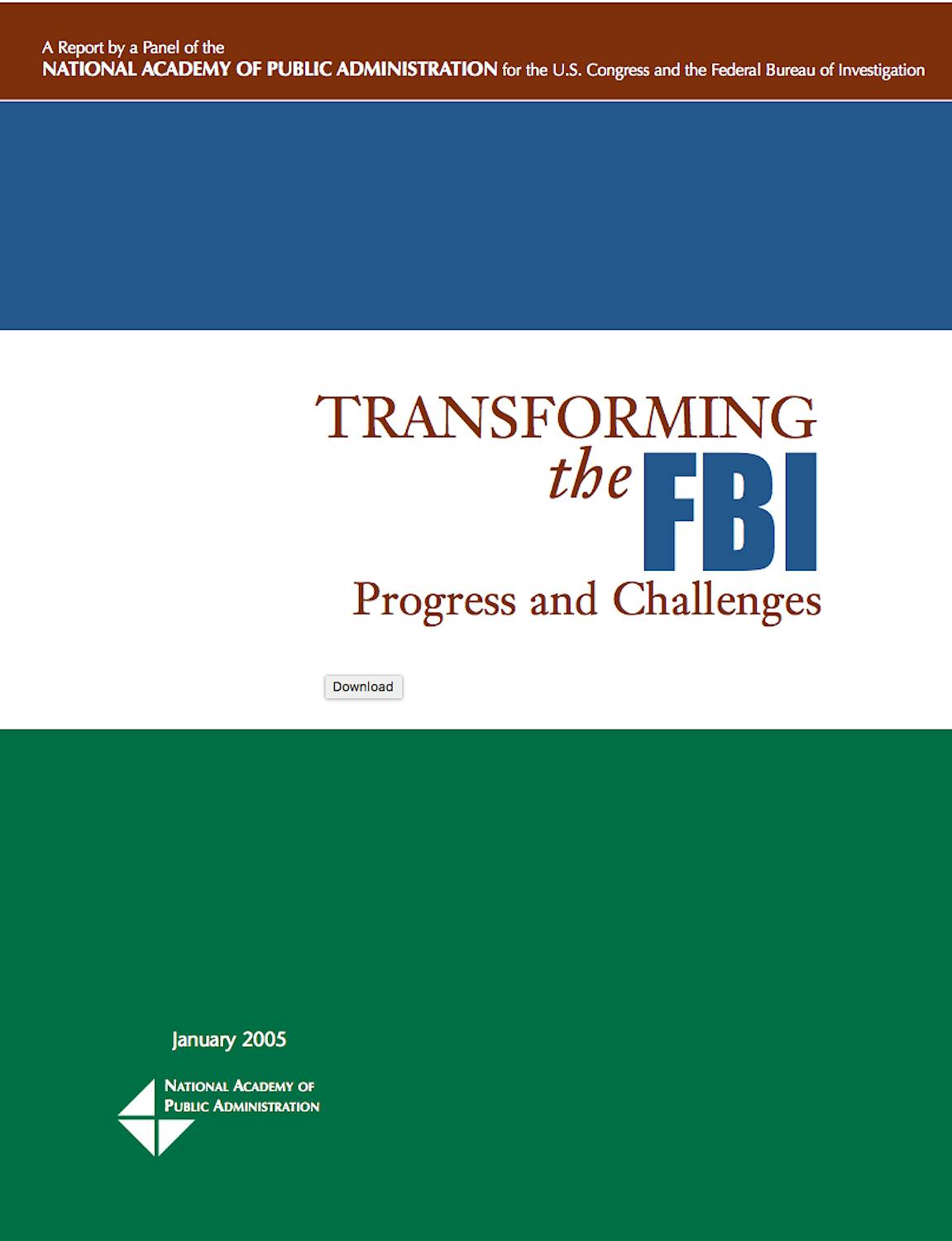
Transforming the FBI: Progress and Challenges
This project stemmed from the Academy's previous reviews of the recent reorganization at the Federal Bureau of Investigation (FBI), as well as active consultation with House Appropriations Subcommittee staff and the FBI.
Click the button below to view the View Study Report.
View ReportKey Findings
In this report, the Academy Panel was asked to examine the following areas:
- Counterterrorism Division. The Panel was asked to provide an update on changes made in the Counterterrorism Division. Specifically, it was to assess the FBI’s processes and technologies for sharing counterterrorism information, both internally and externally with state/local law enforcement agencies, first responders, and foreign partners.
- Office of Intelligence. The Panel was asked to review the FBI’s progress in forming and developing this office. It was to focus on the office’s structure, concepts of operations, integration of its activities with other intelligence community activities, and processes for intelligence collection, analysis, and dissemination.
- Security. The Panel was asked to evaluate the FBI’s progress in adopting the security recommendations of the Webster Commission and the Rand Report. It was to assess progress made in establishing and implementing security policies and carrying out the Security Division’s program plan.
Recommendations
The key recommendations made by the National Academy Panel in this report included:
- Counterterrorism: 1) develop a single watch list of known or suspected terrorists; 2) develop an initial scheme for evaluating the performance of counterterrorism agents in the field; 3) coordinate with the Congress and the relevant DHS components in supporting state and local counterterrorism initiatives; 4) link FBI’s performance measures to its strategic goals and objectives.
- Intelligence: 1) emphasize intelligence management in the Office of Intelligence; 2) perform domestic threat assessments; 3) develop a production program focused on strategic analyses; 4) coordinate with American intelligence agencies operating abroad to avoid duplicative efforts.
- Security: 1) develop performance measures for all essential elements of security operations; 2) complete a management information system in the Security Division to provide accurate and adequate statistical information on security; 3) complete the new security policy manual as soon as possible; 4) involve system users or owners in the accreditation process with the Chief Information Officer and the Security Division; 5) place security investigation and adjudication responsibility within one division. Accelerating automation of the personnel security process should be a high priority of the division.
